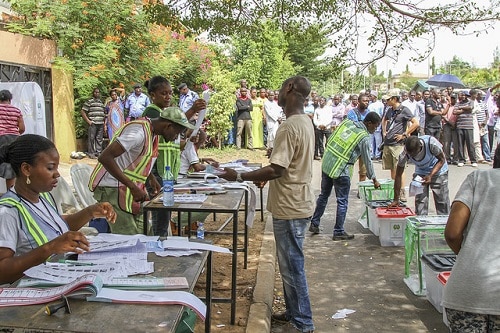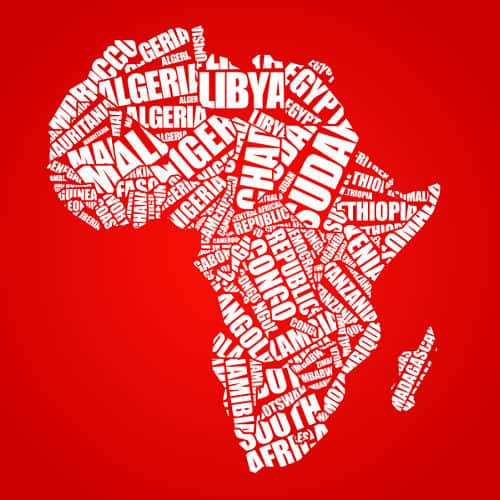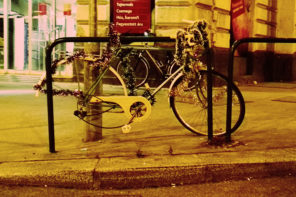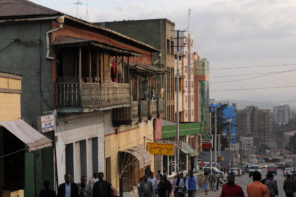How political authority and legitimacy are sustained in societies marked by socio-economic inequality and political exclusion has been a long-standing preoccupation in the social sciences. Especially in Africa, accounting for state formation continues to be, as it would appear, a particularly vexing problem. Too often, this has been understood as the process of setting up institutions corresponding to a normative idea of the modern (read: Western, liberal democratic) state. This view has tended to assume that the difficulties encountered by African modern polities in building the state are technical in nature, i.e. a failure of modernisation to put it broadly. The imposition of a normative analytical account of statehood, however, fails to do justice to the contingent nature of politics. Moreoever, certain analytical approaches have yielded tautological explanations, based on some essentialist, culturalist reductionism: African states are failing because this is Africa, or so the view goes. Social anthropology, however, with its attention to everyday politics and the emic experiences of very different lifeworlds, has cultivated a healthy distrust of reductionist, monocausal explanations, and offered alternative accounts of the political that might help correct overly pessimistic accounts of the state of politics in Africa.
Still, within the discipline itself, the conceptual approaches remain equally varied, resulting in a great diversity of viewpoints and takes on how to grapple with these big issues, and continuing to nurture exciting, animated, and sometimes heated debates.

Image by IIP Photo Archive / U.S. Embassy / Idika Onyukwu (flickr, CC BY-SA 2.0).
In the post that starts this thematic week (on Tuesday), Thomas Bierschenk reflects on the book States at Work (co-edited with Jean-Pierre Olivier de Sardan) — reviewed earlier on Allegralab — and calls for careful ethnographic scrutiny of state phenomena, analysing the practices and forms of knowledge of state functionaries in Africa, to wrest back the debate from political science and counter any pathologising, normative accounts of the African State. As detailed in the book’s introduction (and the post), the editors also chastise Africanist anthropology for aligning itself with the ‘ethereal realms’ of dated, Eurocentric political philosophy rather than with its closest disciplinary (and empirically oriented) neighbours (Bierschenk and Olivier de Sardan 2014, 20). They decry anthropology’s obsession with ‘the philosophical fashions of the moment,’ which ‘continues to shy away from empirical engagement but instead aims to produce an often second-hand philosophy’ (54), singling out the concepts of Foucault and Gramsci for being ‘particularly resistant to operationalization for empirical research’ (53).
This emphasis on the empirical grounding of ethnographic research is a welcome counterweight to some of social anthropology’s loftier tendencies, and the methodological rigor of their take on the state allows us to disaggregate the state and treat it as a bundle of practices and a system of social relations. However, as the collection of recent books in our upcoming call for #reviews shows (out on Wednesday), ethnography offers a wide and inspiring variety of analytical approaches to ‘the political’. It is, for example, not always an easy or straightforward proposition to separate ‘state agents’ from citizens at large, nor is it always analytically fruitful when trying to render intelligible political formations ‘below the threshold of visibility for normative conceptions of political action’ (von Schnitzler 2016, 9).
Indeed, if anything, ethnography can help us understand the affective charge of embodied experiences (cf. Laszczkowski and Reeves 2015) of living with state power, and the social, reciprocal cultural processes that reproduce political authority, power, and inequality in the everyday.
As the two #redux posts that close the week show — one on policing in South Africa, one on affect and ruination in Northern Cyprus — our questions about the nature of the state and power are far from settled, and continue to fuel lively debates in the discipline. We hope that you, the reader, will be inspired to write a review for us and thus contribute to pushing the discussion further.
References
Bierschenk, T. and J.-P. Olivier de Sardan, eds. 2014. States at Work: Dynamics of African Bureaucracies. Leiden ; Boston: Brill.
Laszczkowski, M. and M. Reeves. 2015. Introduction: Affective States—Entanglements, Suspensions, Suspicions. Social Analysis, 59(4), 1–14.
von Schnitzler, A. 2016. Democracy’s Infrastructure: Techno-Politics and Protest after Apartheid. Princeton, NJ: Princeton University Press.








